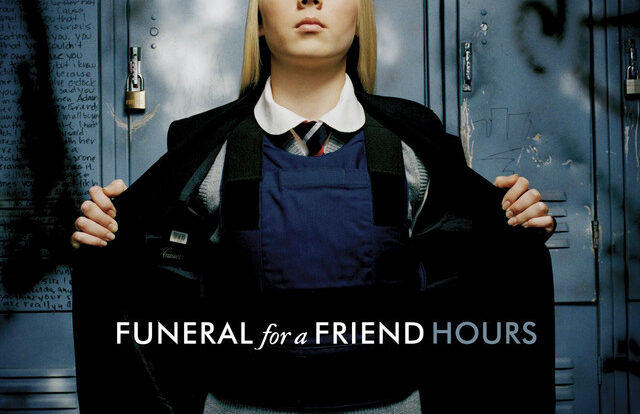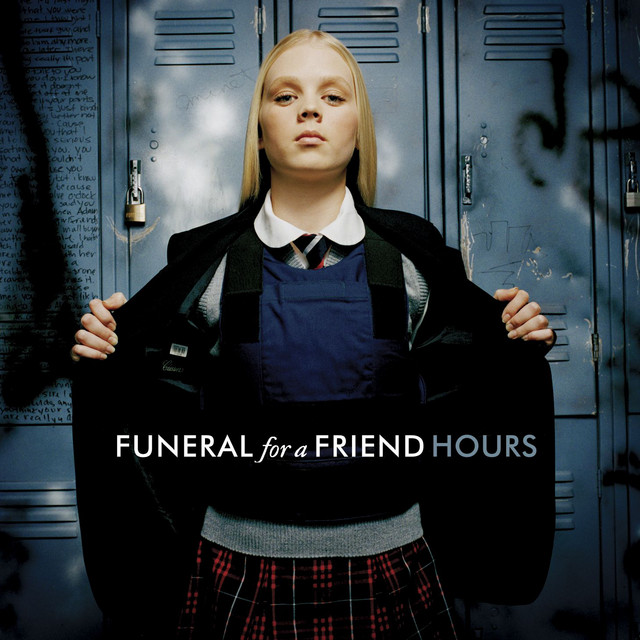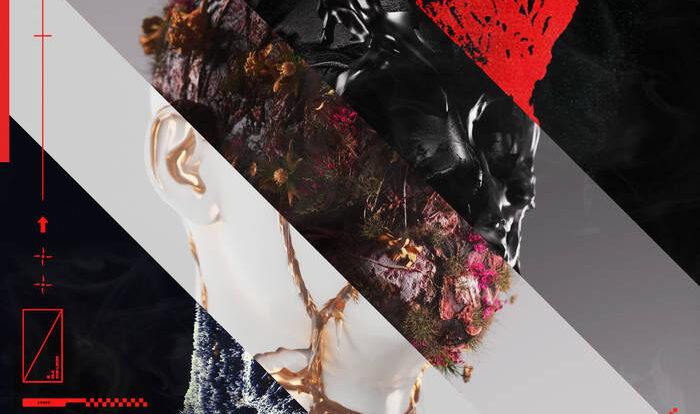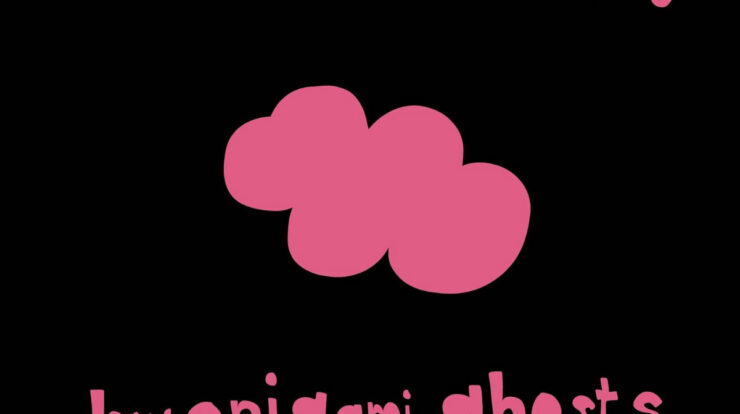
This post was originally published on this site
Following up your debut album, especially when that debut has made a blistering impact, is a daunting challenge for any band. For FUNERAL FOR A FRIEND, that impact had come quickly. Their 2003 debut, Casually Dressed And Deep In Conversation, followed fast on the heels of their first two EPs. The Welsh post-hardcore/emo five-piece hurled that album together at breakneck speed, assembling it from re-recordings and rapidly written new material, and found it received unexpected critical and commercial success. How to go about topping that?
In defiance of that debut’s scrappy origins (and rollout: in the US, a compilation EP was released instead, the album following six months later), sophomore effort Hours was a much more intentional affair. The band travelled to the US, setting up shop in Seattle to give themselves time and space to craft an album purposefully. They recruited producer Terry Date, famed then for his work on seminal DEFTONES and LIMP BIZKIT albums (and who would later helm the desk for BRING ME THE HORIZON‘s Sempiternal). Date focused on capturing the band’s live energy, letting them express themselves rather than imposing a particular sound or style.
The result remains a classic of the genre and a favourite of the band. Where Casually Dressed And Deep In Conversation is a live wire of energy and chaos, Hours is much more polished and packed with variety – but no less powerful or raw. Single Streetcar sticks in the memory with its phone dial tone intro and galloping thrash riffs. The band mostly discarded the unclean vocals from drummer Ryan Richards, save for some accents on The End Of Nothing (the closest Hours gets to IRON MAIDEN). In their place are more ballads and dynamic contrasts – the contemplative Drive, the electronics of closer Sonny, and the fan-favourite ballad History.
Vocalist Matthew Davies-Kreye puts in a bravura performance across the album. There’s a ferocity to his voice on opener All The Rage, a perfect capture of the contemporary wave of emo angst and aggression. Keen to inspire a natural performance, producer Terry Date took the unusual move to record vocals outside the studio, including in the back of a moving vehicle for Drive and on a busy street for the bridge of History. Also key to the sound is the guitar work from Kris Roberts. Hours is replete with technical chops – the chorus runs in Streetcar, the two-handed tapping of Roses For The Dead. But more importantly, his lead lines bring a heartstring-tugging melodic sense to rival any of their best contemporaries.
Hours contains plenty of the tropes of relational anguish typical of emo music, but there’s also an undercurrent of political outrage and statement. Hailing from a small South Wales mining town, playing music was a creative escape in an area with limited economic prospects, a frustration Davies-Kreye expounds upon in All The Rage: “Who was it that said great things come to great men? | Well that fucker lied to us | There’s nothing here but a wasteland”. The music video for History depicts the violent conflict between police and workers during the miners’ strikes of the 1980s. Most striking is the album’s artwork: its interior sleeves depict teenager Mandi Kreisher cheerfully wearing school outfits from each decade from the 1950s to the 1990s. On the cover representing the 2000s? A bulletproof vest over a school uniform, the smile wiped from her face. An iconic image, and a powerful statement at the time in the US, with the release just three months after the Red Lake school shootings. Twenty years on, it is even more horrifically relevant.
By Christmas 2005, Hours was certified Gold – it was again a success both amongst fans and critics. Fans of the heavier components of their debut and EPs voiced some disapproval, in particular, the scaling back of the unclean vocals. But it won many more fans, too. The band toured extensively to support the album, playing slots on Warped Tour 2005, Taste Of Chaos and Download Festival, with a final show supporting the album at the Hammersmith Palais in 2006, later released as a live album. A performance of Hours from start to finish in 2014 at Islington Academy was also released as a live album.
In many ways, Hours marked the peak of FUNERAL FOR A FRIEND‘s success. Their 2007 follow-up, Tales Don’t Tell Themselves, expanded in ambition and scope but moved into alternative rock territory. It left behind portions of a fan base eager for the heavier post-hardcore sound. Several more albums bounced between styles before the band disbanded in 2016. A comeback followed in 2019, with the fast-selling post-COVID dates featuring a set comprised of their first three albums, bookended each night by All The Rage and History. Davies-Kreye has since departed the band, with Lucas Woodland of HOLDING ABSENCE taking up the mic for a celebration of the album’s 20th anniversary at outdoor headline shows in Leeds and Cardiff in July.
Twenty years on, Hours has grown into a classic. That debut record may still inspire more nostalgia among the earlier fans of FUNERAL FOR A FRIEND, and their later work may have held more ambition and accessibility. But Hours is a statement record: a perfect hybrid of the raw energy of their early years and the polished intent of a mature band.

Hours was originally released on June 13th, 2005 via Atlantic Records.
Like FUNERAL FOR A FRIEND on Facebook.
The post HEAVY MUSIC HISTORY: Hours – Funeral For A Friend appeared first on Distorted Sound Magazine.




